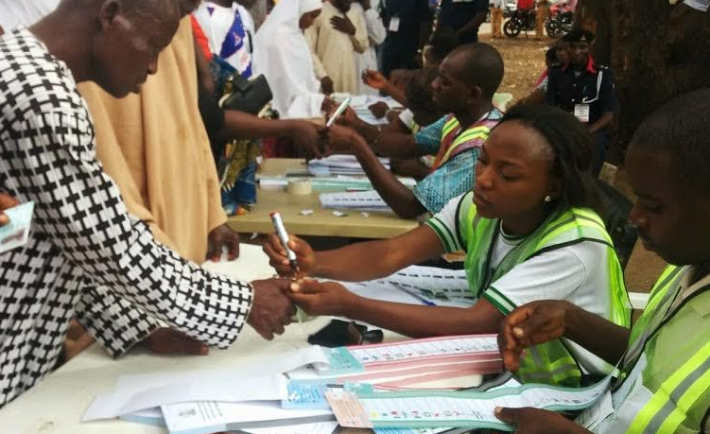
A female election official in Nigeria marks the thumb of a voter on election day in 2015 to help prevent double voting.
For the first time in history, over half the world’s population lives under elected governments. Yet, even in the most established democracies, women continue to be widely under-represented as voters, political leaders and elected officials. As half the world’s population, women are a key part of any democracy and their full and equal participation is a human right, and a measure of democratic integrity. Furthermore, we now have evidence of the positive effects of women’s participation. This can be seen in peace processes, where women’s involvement in peace negotiations means that the settlements are 35 percent more likely to last at least 15 years. Equally, a study that tracked women’s increased participation in local councils in India, showed that more women councillors led to increased investment in public services such as water and roads, improved parents’ aspirations for their daughters, and “erased” the gap between the boys’ and girls’ educational achievements.

_1_1.jpg)